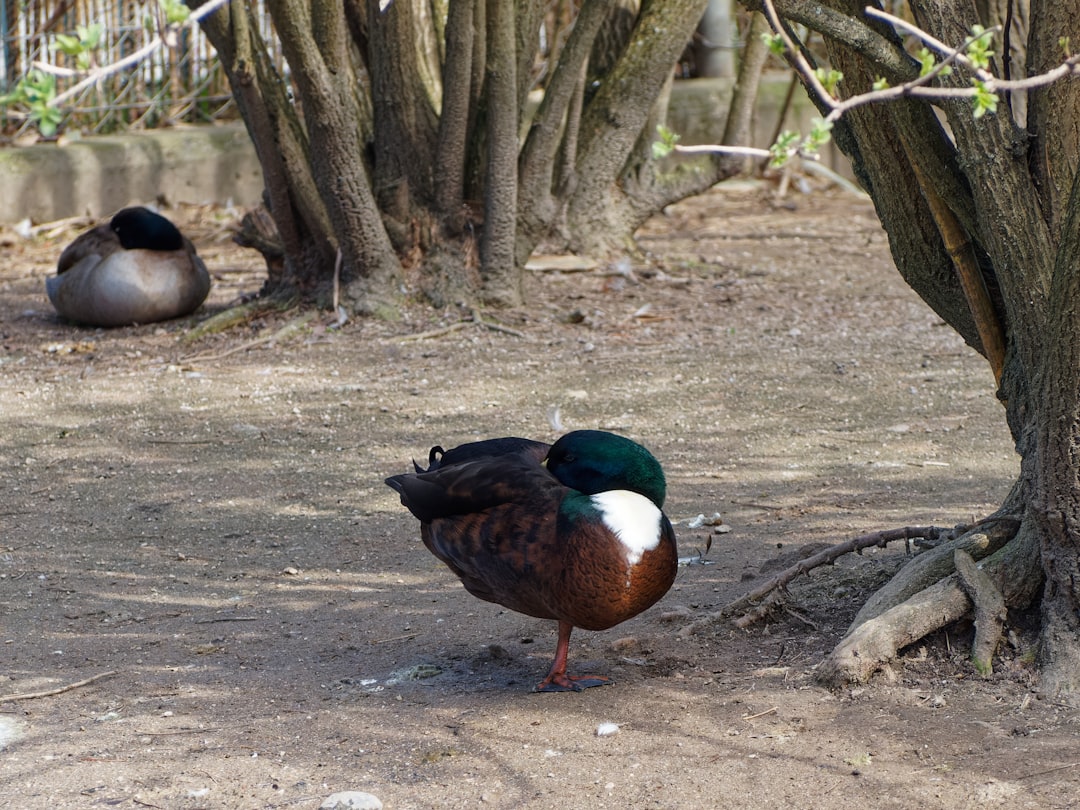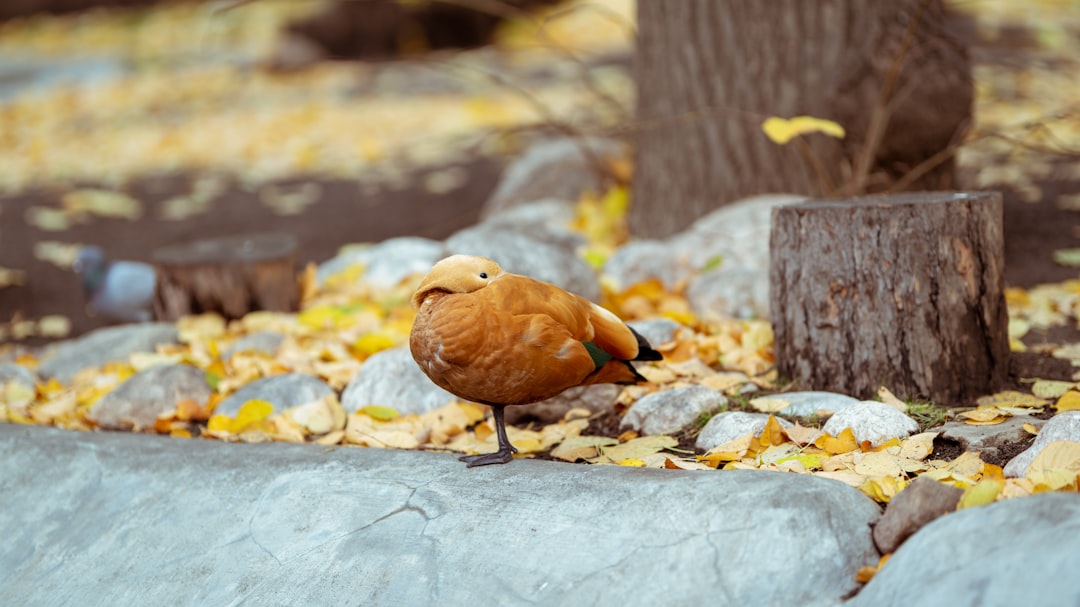Do you ever wonder how ducks sleep? Do they sleep like humans or other animals? Well, it’s a common question that people often ask. Do ducks sleep standing up?
So, let’s get started! Yes, ducks can sleep standing up. Ducks have the ability to lock their legs in place, which allows them to rest while remaining upright.
This is a useful adaptation for ducks, as it enables them to quickly and easily take off in case of danger. In this article, we will delve into the sleeping habits of ducks and find out if they really do sleep standing up.
Ducks also have the ability to sleep while floating in the water, or by tucking their heads under their wings while lying down.
Overall, ducks are adaptable creatures that have evolved a range of sleeping habits to suit their needs in different environments.
Do Ducks Sleep Standing Up?
Yes, ducks can sleep standing up. In fact, they often do! This is because standing up helps them conserve heat. When a duck sleeps standing up, it tucks one leg into its feathers and closes its eyes.
This way, the duck can stay warm while still being able to quickly get away if it is startled. Ducks can also sleep on the ground or in the water.
Here are some of the reasons why ducks sleep standing up:
- To conserve heat: When a duck sleeps standing up, it tucks one leg into its feathers. This helps to trap heat and keep the duck warm.
- To stay safe: When a duck sleeps standing up, it is more likely to be able to see predators coming. This gives the duck a chance to escape before it is attacked.
- To be able to move quickly: If a duck is startled while it is sleeping, it can quickly stand up and fly away. This is not possible if the duck is sleeping on the ground or in the water.
Ducks Sleeping In Standing Up Position
Their ability to sleep while standing up is due to the unique structure of their legs, which allows them to lock their joints in place. This allows them to rest while maintaining their balance on one leg.
Ducks typically only sleep while standing up for short periods of time, such as during a quick nap.
When they need to sleep for longer periods, they will often tuck their heads under their wings while lying down, or sleep while floating in the water.
How Do Ducks Sleep While Standing?
Ducks have ability to lock their legs in place, ducks also have a unique sleep pattern. They sleep with “one eye open and one half of their brain awake”, allowing them to remain vigilant to potential dangers while still getting some rest.
This is known as “unihemispheric” slow-wave sleep, and it is a common adaptation among many birds and marine animals.
Why Did Ducks Evolve To Sleep On One Leg?
The reason ducks evolved to sleep on one leg is not entirely clear, but scientists believe that it is due to energy conservation.
By standing on one leg, ducks reduce the amount of heat lost through their legs, which helps them conserve energy during cold nights.
Sleeping with one eye open and only half of their brain asleep allows them to stay alert to potential threats while still getting some rest. This adaptation has likely helped ducks survive in their natural habitats for millions of years.
Where Do Ducks Sleep?

Ducks can sleep in a variety of locations, depending on their surroundings and the availability of shelter. Some species of ducks prefer to sleep in trees or other elevated areas where they are less likely to be disturbed by predators.
Others may sleep on the ground near water sources or even in shallow water. Ducks are also known to congregate in large groups during the winter months for warmth and safety, so you may find them sleeping together in large flocks.
When Do Ducks Sleep?
Ducks are diurnal animals, which means they are active during the day and sleep at night. However, their sleeping patterns can vary depending on factors such as food availability, weather conditions, and predator activity.
The 6 Versatile Duck Sleeping Habits (Sleeping Postures)
Ducks have a range of sleeping habits that are adaptable to their needs in different environments.
Whether they are sleeping standing up, floating in water, or tucking their heads under their wings while lying down, ducks have unique sleep patterns that help them conserve energy and stay alert to potential dangers.
Some sleeping habits of ducks are described below .
1. Sleeping With One Eye Open
One interesting sleeping habit of ducks is that they sleep with “one eye open and one half of their brain awake”. This allows them to remain vigilant to potential dangers while still getting some rest.
This is known as unihemispheric slow-wave sleep, which is a common adaptation among many birds and marine animals.
2. Sleeping On One Leg
Another sleeping habit of ducks is sleeping on one leg. This is due to the unique structure of their legs, which allows them to lock their joints in place and rest while maintaining balance on one leg.
Sleeping on one leg helps ducks conserve energy during cold nights by reducing heat loss through their legs.
3. Sleeping With Their Head Tucked
When ducks need to sleep for longer periods of time, they will often tuck their heads under their wings while lying down.
This helps them stay warm and protected from the elements while they rest. Ducks can also sleep while floating in water by tucking their heads under their wings and keeping one eye open to remain alert.
4. Sleeping In The Water
Ducks are also known to sleep while floating in the water. This is because their buoyant bodies allow them to remain afloat without any effort, making it an easy and safe place to rest.
They will typically tuck their head under their wing and keep one eye open to remain alert to potential dangers while they rest.
5. Sleeping During The Day
Ducks may take short naps throughout the day while remaining alert to potential dangers.
They can sleep while in the water or on land, depending on the situation. When they are sleeping during the day, ducks will often choose a spot where they feel safe and protected.
Some species of ducks may even choose to sleep in trees or on elevated areas to avoid predators.
6. Ducks Don’t Always Sleep At Night (Semi-nocturnal In Nature)
While ducks are “diurnal animals” and generally sleep at night, they can also be “semi-nocturnal” in nature.
This means that they may sleep for longer periods during the day if they feel safe enough to do so. Factors such as predator activity, food availability, and weather conditions can all impact when and where ducks choose to sleep.
Do Ducks Always Sleep On The Same Leg?

Ducks do not always sleep on the same leg. Like humans, they change positions during their sleep to avoid discomfort and muscle fatigue.
Ducks may alternate between sleeping on one or both legs depending on their level of tiredness and the surface they are standing on.
Why Do Ducks Stand On One Leg And Sleep?
Ducks stand on one leg and sleep to conserve energy and regulate their body temperature. This is especially important during cold nights when they need to keep warm.
By standing on one leg, ducks reduce the surface area of their body that is exposed to the cold air, which helps them conserve heat.
Do Ducks Ever Lie Down To Sleep?
Yes, ducks do lie down to sleep. When they need to rest for longer periods of time, they will often tuck their head under their wings and lie down on the ground or in shallow water.
This position helps them conserve energy and stay warm while sleeping.
How Is Sleeping On One Leg Beneficial For Ducks?
Sleeping on one leg is beneficial for ducks because it helps them conserve energy.
By standing on one leg, ducks reduce the amount of muscular effort required to maintain balance, which in turn reduces their overall energy expenditure.
Are There Any Drawbacks To This Habit?

Standing on one leg for extended periods can cause muscle fatigue and strain, which may lead to discomfort and difficulty in standing or walking.
Ducks may also be more vulnerable to predators while sleeping in this position, as they are not able to react as quickly to potential threats.
Sleeping on hard surfaces can cause calluses or sores on their feet over time.
How Long Do Ducks Sleep?
The amount of time ducks sleep can vary depending on their environment and level of safety. When they feel secure, they may sleep for longer periods during the day, taking short naps throughout to remain alert to potential dangers.
On average, ducks may sleep for up to “10.8 hours a day”, with some species sleeping more or less than others. Factors such as food availability and weather conditions also play a role in how long ducks sleep.
During migration season, ducks may reduce their sleep time as they need to fly long distances to reach their destination.
Conclusion! Do Ducks Sleep Standing Up?
Ducks have unique sleeping habits that allow them to rest while remaining alert to potential dangers in their environment.
Sleeping on one leg helps them conserve energy and regulate their body temperature, but it can also cause muscle fatigue and make them more vulnerable to predators.
Ducks may sleep for up to 10.8 hours a day depending on their environment and level of safety. They may sleep during the day if they feel secure enough or at night like most animals.
Overall, ducks have evolved versatile sleeping habits that help them survive in diverse habitats around the world.
FAQs
Do Ducks Sleep Standing Up?
Yes, ducks can sleep standing up.
Why Do Ducks Sleep Standing Up?
Ducks sleep standing up to conserve energy and regulate their body temperature.
Can Ducks Sleep Lying Down?
Yes, ducks can also sleep lying down when they need to rest for longer periods of time.
Is Sleeping on One Leg Beneficial for Ducks?
Yes, sleeping on one leg helps ducks conserve energy and regulate their body temperature.
How Long Do Ducks Sleep During the Day?
Ducks may sleep for up to 10.8 hours a day depending on their environment and level of safety.




